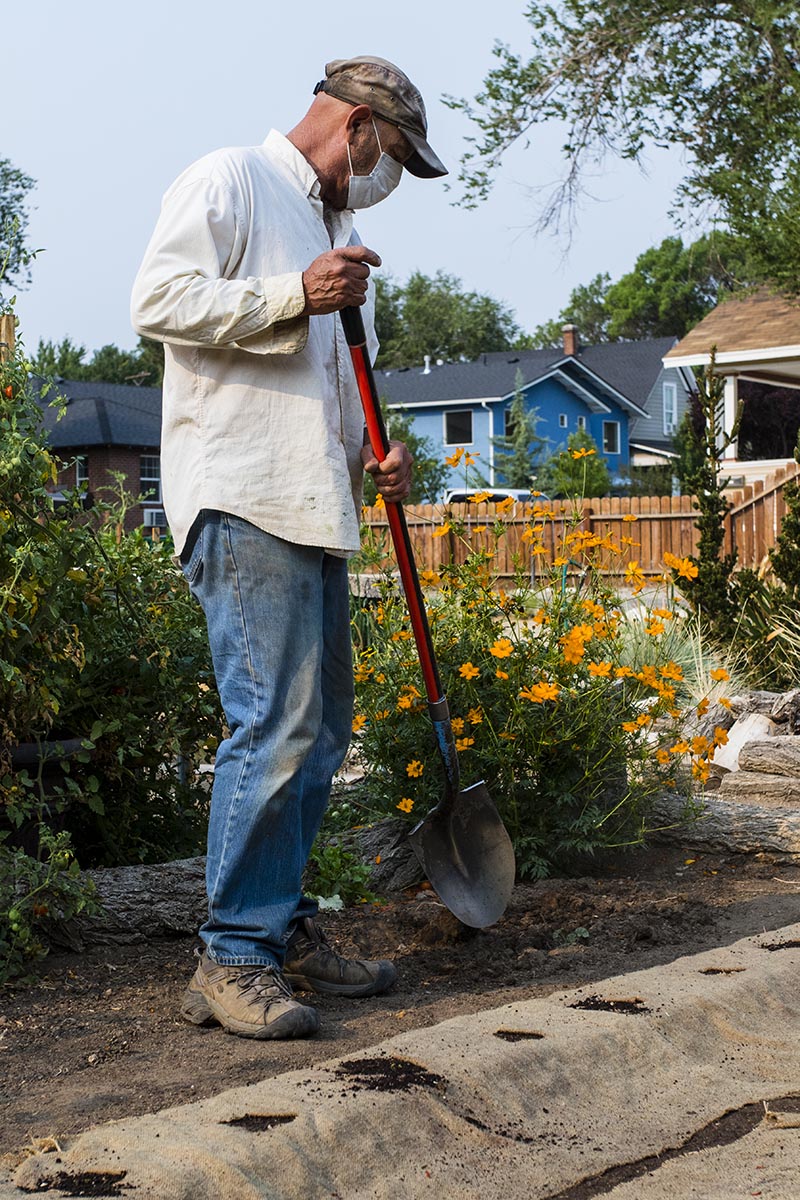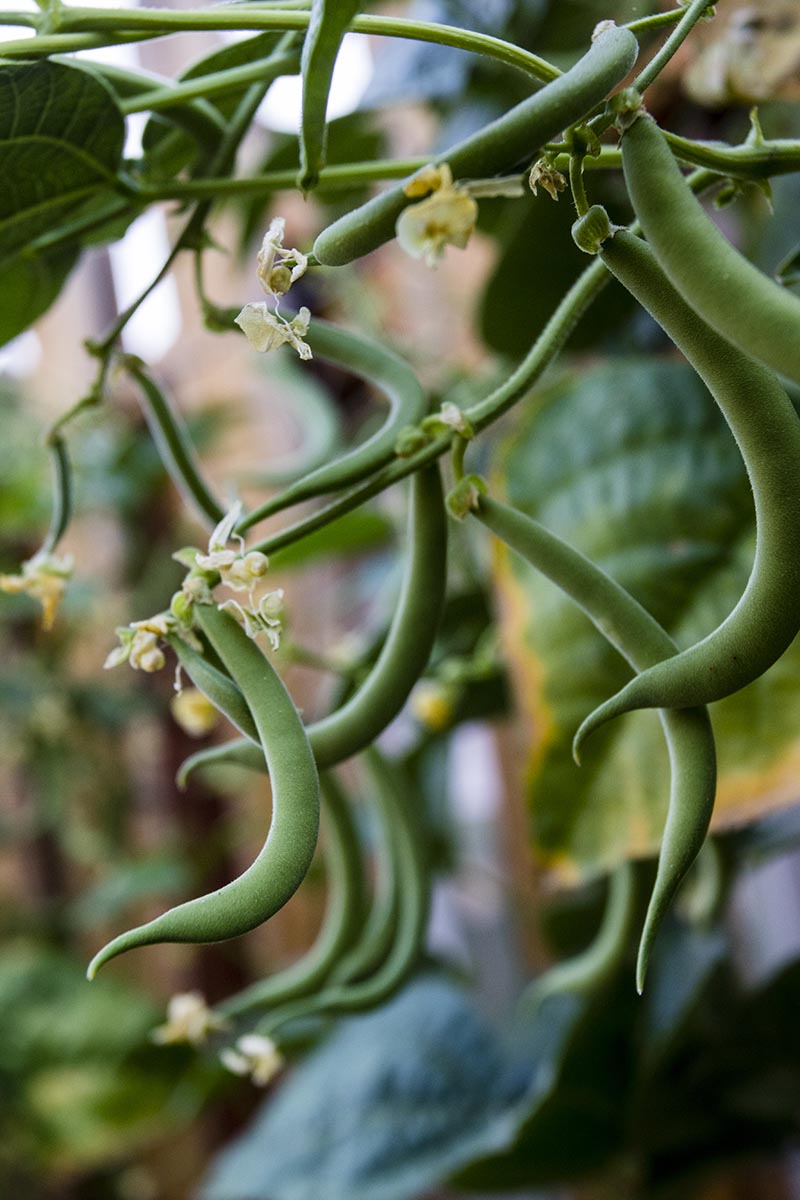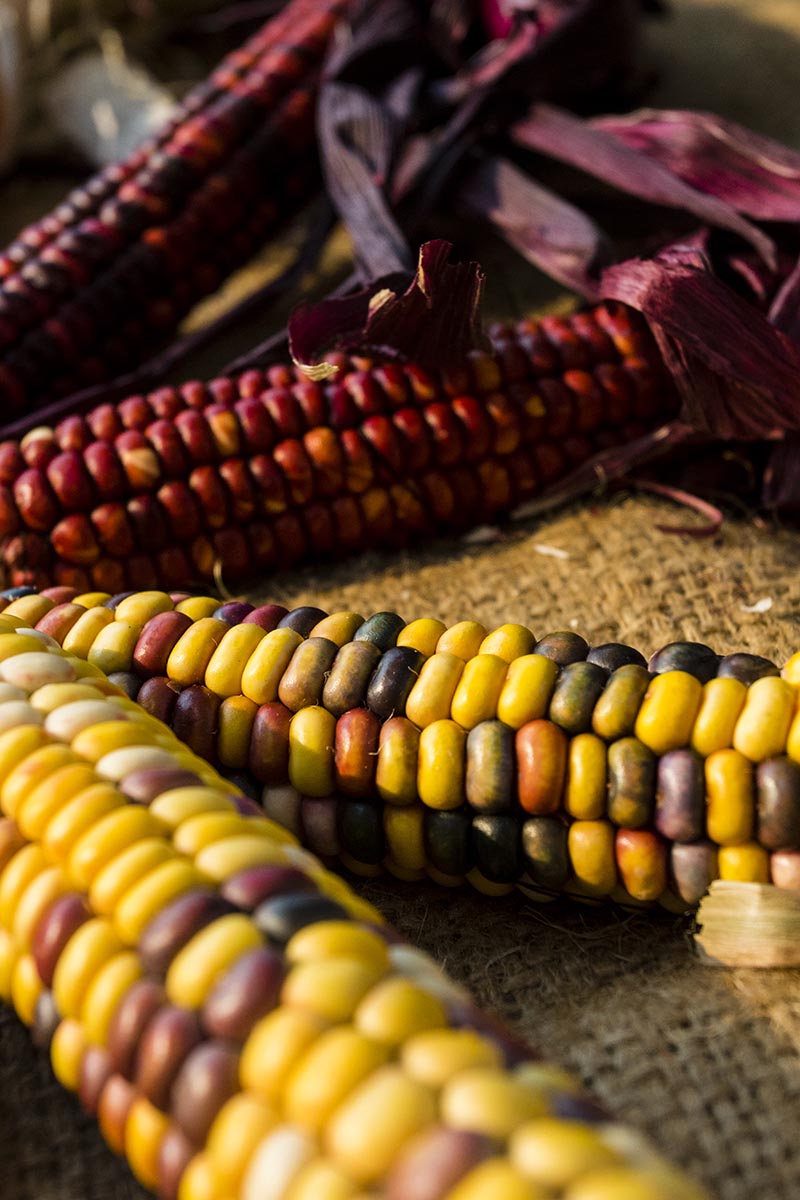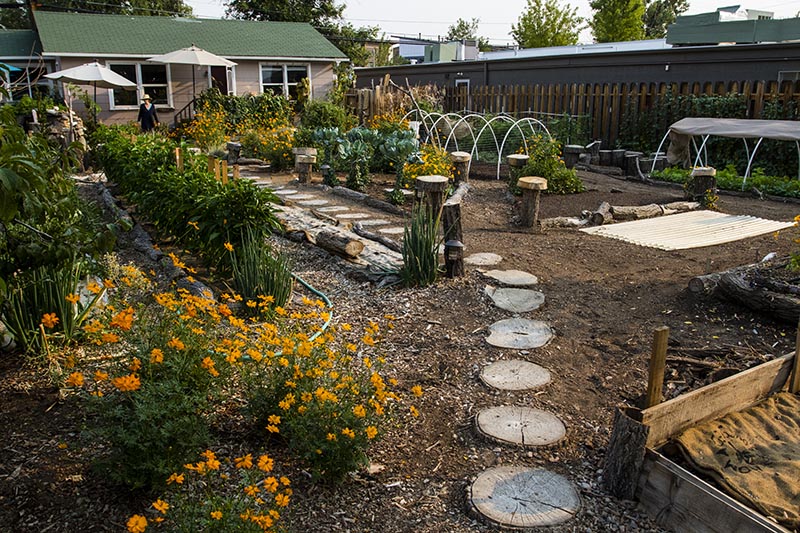Reno-Tahoe urban farms foster community connection.
The front yard of Mark Hebert and Becky Jessee’s Midtown Reno home is bursting with life. Green beans climb homemade trellises, Cherokee purple tomatoes are beginning to take shape, and neat rows of lettuce provide an ever-producing salad bar. Yellow coneflowers and magenta cosmos attract beneficial pollinators, and, in a nearby bin, worms munch away at organic materials to make compost.
After tearing out the original dead lawn, Hebert spent five years developing the soil of his 40-foot-by-70-foot urban garden since retiring from a career in construction.
“The joke I tell everyone is that I retired with too much time and too much money, and if I became an urban farmer, I’d run out of both soon enough,” Hebert says.

It’s a labor of love for the couple, who strongly believe in reducing dependence on industrial agriculture and eating with the seasons. They hope to inspire others to make use of the underutilized outdoor space around their homes to reconnect with their food.

“We exchange some of our produce for free margaritas at our favorite local Mexican restaurant, and the rest we share with the community,” Jessee explains. “We often take a truckload of stuff over to the Community Health Alliance over here on Wells [Avenue] because they have a food bank, so we know that food is going right into the bellies of the families here in Midtown and around Reno.”
Feeding the People
Providing locally grown produce to underserved communities is the mission of another urban farm located in the heart of Downtown Reno. Flint Street Farm was started in 2012 on an unused 0.12-acre of land next to the office of Rubik Environmental Inc. as a philanthropic effort by owners Todd and Debbie Leonard.
“The price of unused land is so expensive that this could easily have been turned into a parking lot or another building that would have made Todd and Debbie a lot of money, but what they saw as being more valuable was helping people, connecting them to the land, and getting fresh food to people who couldn’t afford to do so,” says Rebekah Stetson, farm manager of Flint Street. “They’ve decided that it’s not about the financial return; it’s about the human return.”

Flint Street donates its abundant harvest of produce and cut flowers to the Community Health Alliance, The Reno Initiative for Shelter & Equality, Food Not Bombs, Verdi Posse, and Casa de Vida.
Growing Career
The fact that some urban farms in Reno-Tahoe donate their produce doesn’t mean they aren’t financially feasible as for-profit businesses. It just takes hard work and ingenuity — two qualities that Miko Gastelum has been cultivating in abundance since starting Indigenous Farms in his backyard shed in South Lake Tahoe nearly three years ago.
Gastelum, a member of the Pascua Yaqui Tribe of Tucson, Ariz., started growing microgreens year round in his 60-square-foot backyard shed, but he has since expanded his operation to include two greenhouses and outdoor plots. Gastelum grows nearly a dozen varieties of microgreens, salad mix, kale, chard, and sunchokes, which he sells at farmers’ markets throughout El Dorado County during the summer, directly to restaurants year round, and at Grass Roots Natural Foods in South Lake Tahoe.
“I’ve been full-time working on the farm now for the last two seasons,” Gastelum says. “We’re growing twice as much outdoors as we did last year and experimenting to see what works growing up here.”
Indigenous Farms is now at capacity in its current South Shore lot, but, as with many urban farming operations, the high cost of land — especially in a hot market such as Lake Tahoe — is prohibitive to growth. This fact hasn’t cooled Gastelum’s desire to continue growing his high-elevation urban farm and inspiring others to get gardening.
“I know that we’re not making a big dent in the production and transportation of food and what it takes to feed a community, but even if we can just make a small ripple in that wave, I think it’s interesting to see what that does for the community,” Gastelum says. “Even in our neighborhood, we’ve been able to share the knowledge with people and help them grow tomatoes and enhance the look of their yards. It’s a good feeling.”
Claire McArthur is known to wax poetic about her dreams of having a small farm, but in reality she will probably continue to do the next best thing — write about and support those actually growing food for their communities.


